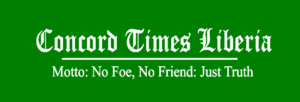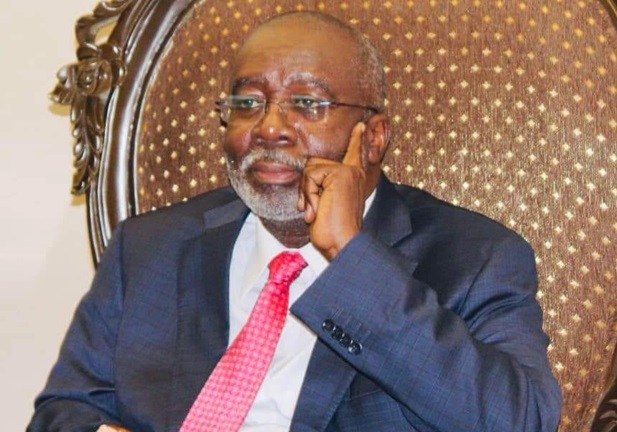Monrovia – Recent leaked information suggests that a controversial plot to remove House Speaker Jonathan Fonati Koffa may be connected to a broader geopolitical shift in Liberia, specifically the Boakai administration’s apparent pivot toward Russia. This development raises questions about the implications of Russian investments in the country, as Koffa is perceived as a potential impediment due to his alleged close ties with American interests.
While the Legislature grapples with internal strife, the Boakai government seems intent on strengthening ties with Russia, a move that has sparked concerns among opposition parties. The largest opposition party, the Congress for Democratic Change (CDC), has issued warnings that President Joseph Boakai’s efforts to establish diplomatic relations with Russia, which conflict with Liberia’s historical partnership with the United States, could destabilize the nation.
CDC Secretary General Jefferson Tamba Koijee voiced these concerns at a press conference on November 12, 2024. He highlighted the recent announcement of Moscow’s plans to open an embassy in Liberia, made by Russian Foreign Affairs Minister Sergey Lavrov at the first Russia-Africa Partnership Forum. Koijee asserted that the Unity Party’s engagement with Russia substantiates earlier claims that President Boakai colluded with Russian entities to finance his 2023 presidential campaign.
Koijee alleged that Boakai and his party conducted clandestine meetings with Russian officials during the election cycle to secure financial backing for their agenda, which he described as detrimental to the Liberian populace. House Speaker Fonati Koffa is a member of the CDC, headed by soccer legend and former President of Liberia George Weah. This statement by the CDC seems to have embarrassed the Boakai government, which issued conflicting statements on Russian affairs.
The CDC statement followed a release from Sochi, Russia, where the Russian Foreign Minister made a public declaration regarding Liberia. Russia plans to open an embassy in Liberia as part of its effort to expand its diplomatic footprint across Africa, announced Foreign Minister Sergey Lavrov during the First Ministerial Conference of the Russia-Africa Partnership Forum.
Representing Liberia at the forum, Deputy Minister for International Cooperation and Economic Integration Ibrahim Al-bakri Nyei addressed attendees on behalf of Foreign Affairs Minister Sara Beysolow Nyanti and President Joseph Nyuma Boakai. Nyei stated that Liberia was eager to deepen its collaboration with Russia in various areas, including trade, technical exchange, and peacebuilding.
“Our participation in this meeting is a demonstration of our interest and desire to engage as a member of the African bloc and to explore partnerships that confront our common global challenges, which include climate change, insecurity, poverty, and inequality,” Nyei said.
According to Nyei, despite being absent from the 2023 Russia-Africa Summit due to its electoral campaign, Liberia aligns with the commitments made at that gathering, where African leaders endorsed partnerships in energy security, economic development, and scientific cooperation with Russia. “We agree in principle to the outcomes of that meeting and believe that it laid a foundation for partnerships that may contribute to shared prosperity,” he said.
Liberia had previously severed its relationship with Russia and supported the United States and the West, making critical comments about the communist nation in recent times. Liberia was among the countries that condemned Russia’s invasion of Ukraine. In fact, under the George Weah regime, Liberia’s Ambassador to the United Nations was recalled for what some diplomatic sources alleged was his anti-Israel and pro-Russian maneuvering.
Boakai’s pro-Russian stance has caused waves of reaction from a wide range of Liberians around the world.
In the first government response, the Ministry of Foreign Affairs clarified that there have been no recent efforts to strengthen diplomatic ties with Russia. This statement is misleading, as Liberia’s Deputy Minister for International Cooperation just returned from Russia. While in Russia, Dr. Nyei made a notable statement at the events that suggests Liberia was seeking renewal of relationship with Russia..
In another statement issued on November 15, 2024, the government emphasized that Liberia has maintained diplomatic relations with Russia since 1972 and that, despite the closure of the Russian embassy during Liberia’s civil crisis, Monrovia and Moscow have maintained this relationship. However, this statement is inaccurate, as Liberia severed its relationship with Russia during the height of the Cold War.
The Boakai government’s statement reiterated that any discussions regarding the reopening of the embassy are preliminary and contingent upon the approval of President Boakai. However, this contradicts statement made in Sochi by Deputy Foreign Minister Nyei.
As speculation mounts over the motivations behind the push to oust Speaker Koffa, sources suggest that the charges against him may be a façade to eliminate a pro-American figure seen as obstructive to the administration’s pro-Russian agenda.
The opposition’s potential strategies to counter this shift may include legislative actions, public campaigns, and alliances with Western nations, although the success of these efforts remains uncertain, according to an international relations expert based in Monrovia.
Ultimately, while the opposition could attempt to slow the momentum of Russian engagement in Liberia, completely halting it poses significant challenges, particularly if the current administration remains steadfast in pursuing closer ties with Russia. said a international group.
The President of Liberia is the chief architect of the country’s foreign policies, and the political landscape in Liberia is increasingly complex as the nation navigates its relationships with global powers amid domestic legislative turmoil.
There are waves of movement towards Russia by some African nations, and sources say the Boakai government, particularly its radical wing, is seen as pushing the aging president toward sidelining Liberia’s traditional allies in favor of Russia.
Speculation is rampant regarding the appointment of Lewis Brown as Boakai’s nominee to the United Nations. Our say to facilitate this scheme swiftly, the removal of House Speaker Cllr. Jonathan Fonati Koffa has been strategically planned to avoid hindering future plans to award concessions and contracts to Russian companies, according to top sources within the international community.








